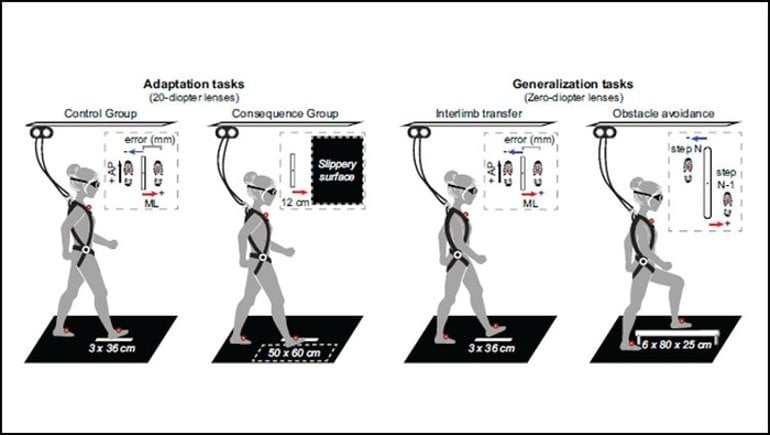Summary: Physical consequences such as accidental slipping help improve and prolong motor learning, a new study reports.
Source: SfN
Actions have consequences, and the physical consequence of slipping improves motor learning, according to research recently published in eNeuro.
The brain refines movement in response to mistakes, especially ones that can be dangerous, like a slip or stumble. But in most laboratory studies of motor learning, mistakes have no physical consequence.
In a study by Bakkum and Marigold, participants walked down a walkway and stepped their right foot on a target while wearing prism googles that warped their visual field and shifted everything to the right. In one group, the walkway hid a slippery surface to the right of the target.
The participants slipped until they learned to adjust their steps to the left.
The slip group and the control group adjusted to the goggles at the same pace, but the learning stuck more in the slip group.

The slip group performed better in new tasks, like stepping on the target with their left foot or stepping over obstacles, a sign that their learning could generalize to other situations. One week after testing, the slip group performed better than the control group.
Future studies will investigate if the surprise or emotional response to slipping improves learning, or if physical consequences themselves are an integral component of motor learning.
About this neuroscience research news
Author: Calli McMurray
Source: SfN
Contact: Calli McMurray – SfN
Image: The image is credited to Bakkum and Marigold, eNeuro 2022
Original Research: The findings will appear in eNeuro






